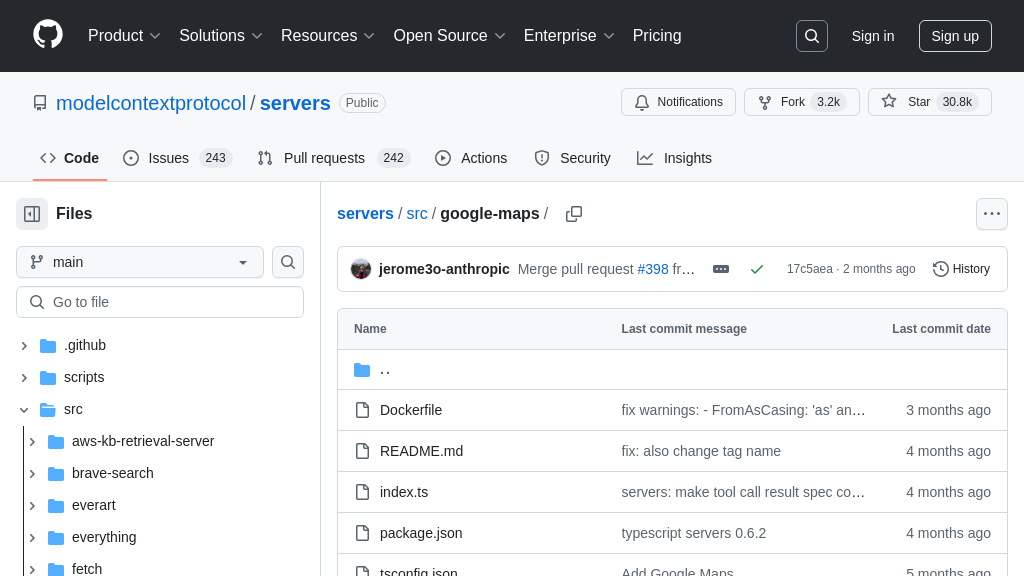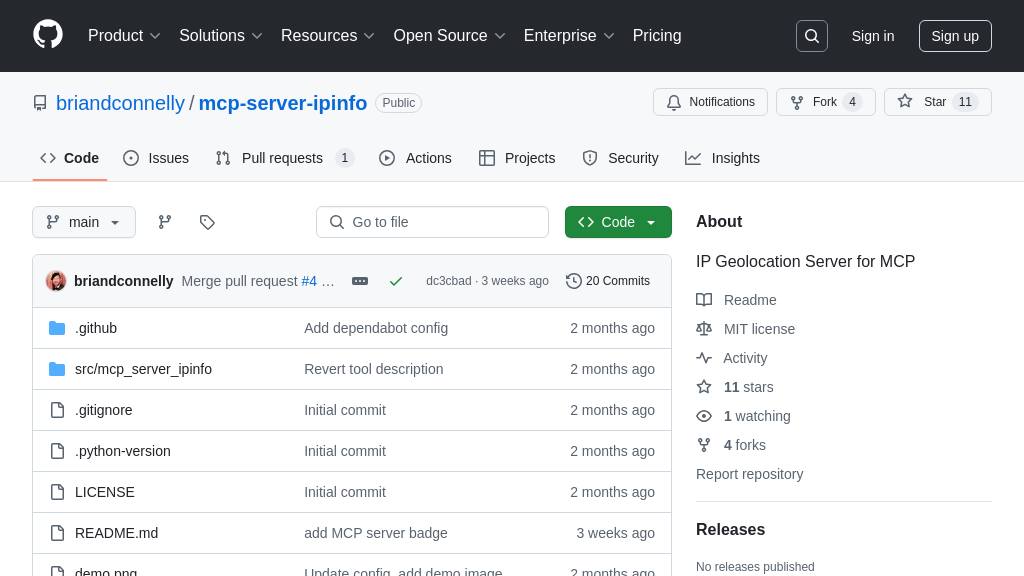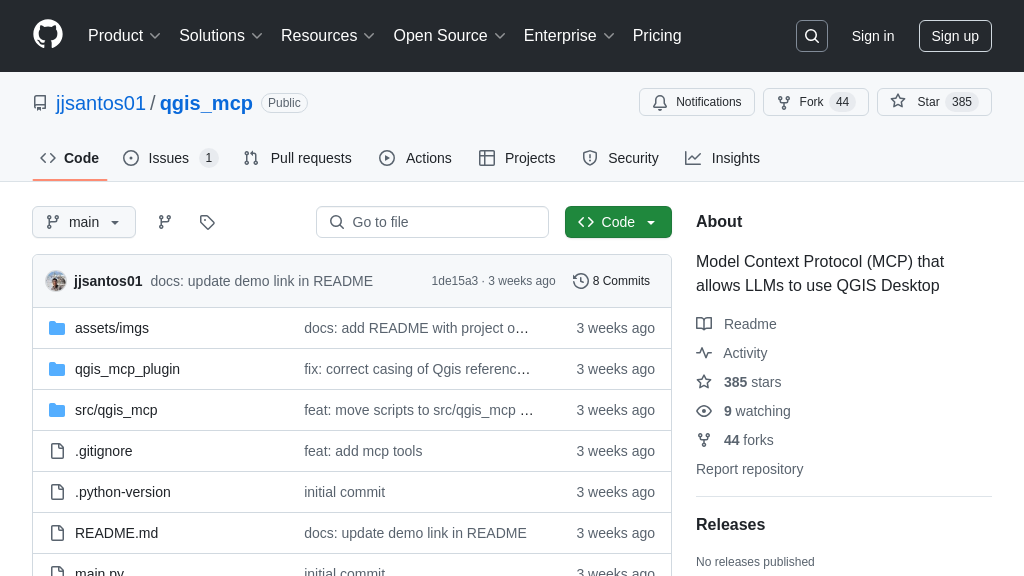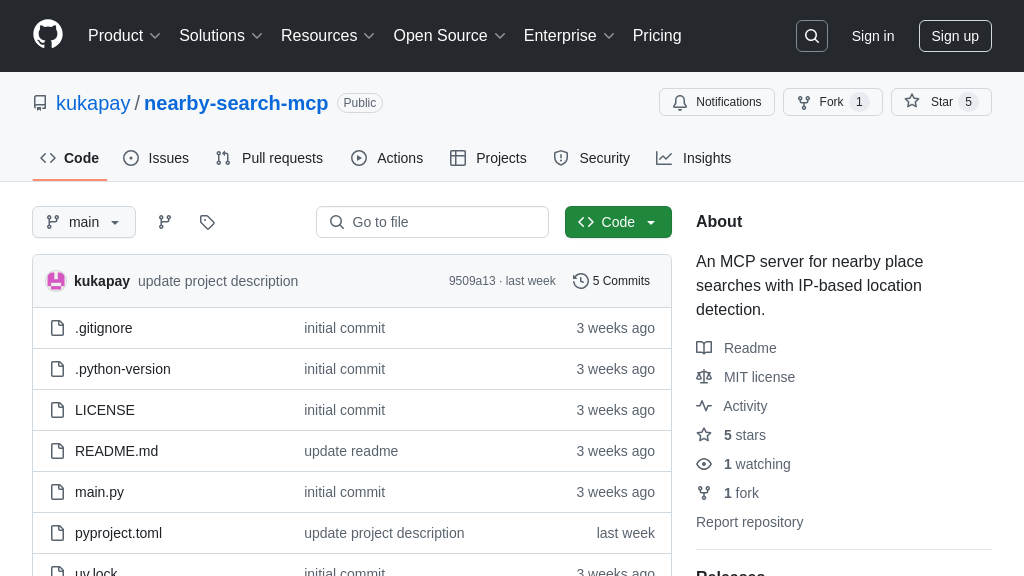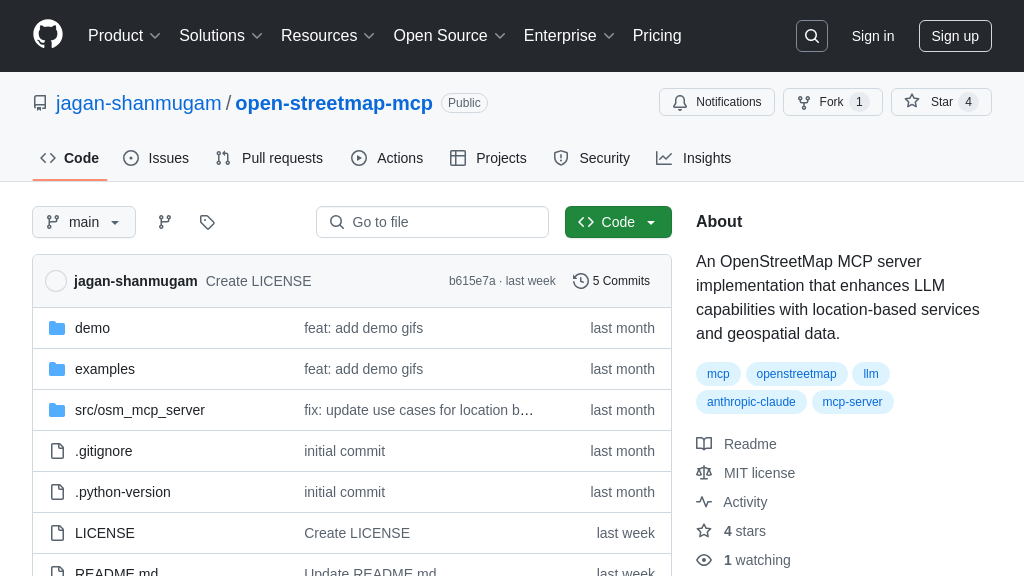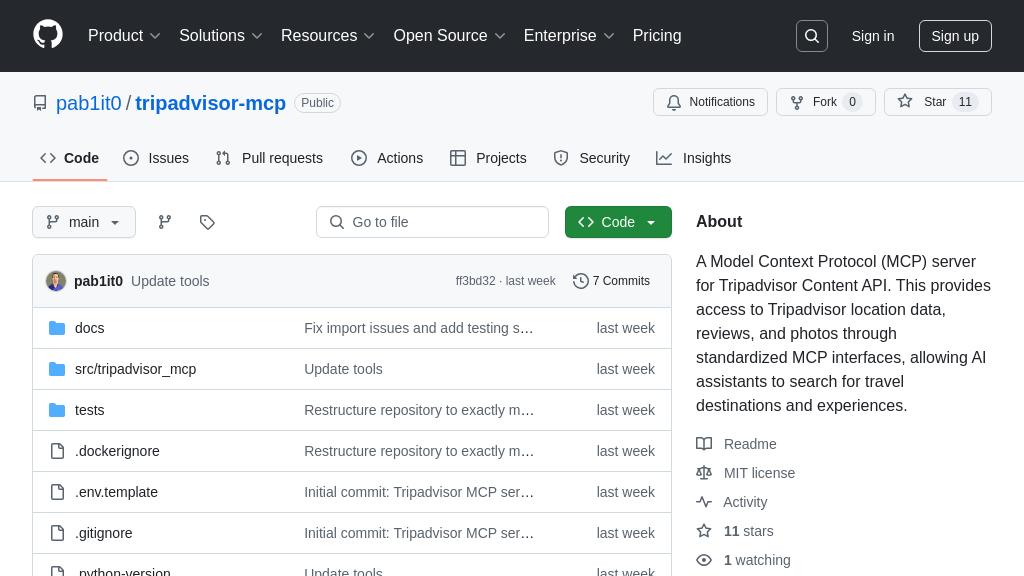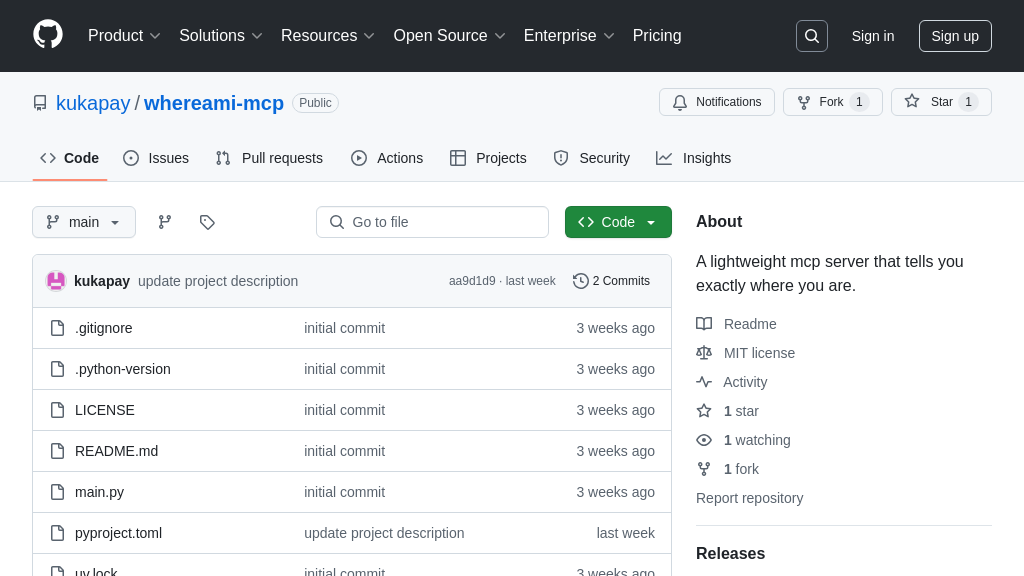MCP-Geo
MCP-Geo: Geocoding server for LLMs, enabling location-aware AI.
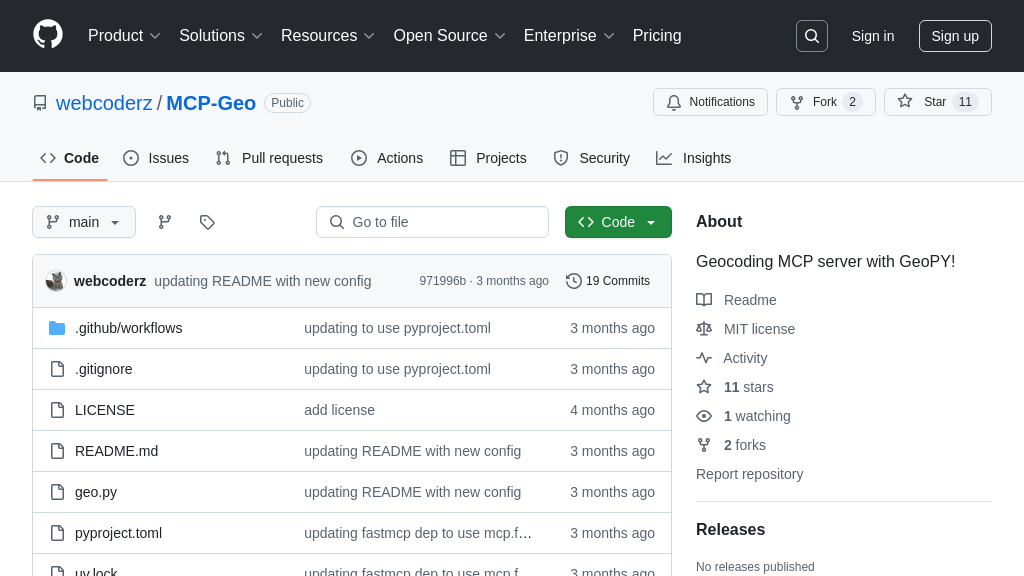
MCP-Geo Solution Overview
MCP-Geo is a geocoding MCP server designed to empower Large Language Models (LLMs) with location-based intelligence. By leveraging the GeoPY library, it provides tools for geocoding (converting addresses to coordinates) and reverse geocoding (converting coordinates to addresses). Key functionalities include precise location identification, distance calculation between locations, and detailed address information retrieval.
This server seamlessly integrates with AI models through the MCP framework, enabling them to understand and interact with geographical data. Developers benefit from its ability to ground LLMs in the real world, opening doors to location-aware applications. MCP-Geo prioritizes safety with rate limiting and robust error handling. It can be easily installed for Claude Desktop or configured for other environments, offering flexibility and ease of use. It uses fastmcp and geoPy to deliver its functionalities.
MCP-Geo Key Capabilities
Geocode Location to Coordinates
This core function, geocode_location, empowers AI models to translate human-readable addresses or place names into precise geographical coordinates (latitude and longitude). It leverages the GeoPY library to query geocoding services, returning not only the coordinates but also a formatted address for verification. This allows LLMs to understand the spatial context of text, enabling location-based reasoning and decision-making. For example, an LLM could use this function to determine the coordinates of "1600 Amphitheatre Parkway, Mountain View, CA" and then use those coordinates to find nearby restaurants or calculate distances to other locations. The function handles potential errors from the geocoding service, returning None if no match is found, ensuring robustness.
Reverse Geocode Coordinates
The reverse_geocode function performs the opposite of geocoding, converting latitude and longitude coordinates into the nearest address. This is crucial for scenarios where an AI model needs to understand the real-world location represented by a set of coordinates. For instance, if an LLM receives GPS data from a mobile device, it can use reverse_geocode to identify the street address and neighborhood. This enables applications like location-based recommendations, contextual advertising, and improved mapping accuracy. The function utilizes GeoPY to query reverse geocoding services and returns a formatted address. Error handling is implemented to gracefully manage cases where no address is found for the given coordinates.
Calculate Distance Between Locations
MCP-Geo provides two functions for distance calculation: distance_between_addresses and distance_between_coords. The former takes two addresses as input, geocodes them using geocode_location, and then calculates the distance between the resulting coordinates. The latter directly accepts latitude/longitude pairs. This functionality is essential for AI models that need to reason about proximity and spatial relationships. For example, an LLM could use distance_between_addresses to determine the travel distance between two customer locations for logistics optimization or to find the closest emergency service to a given incident. The implementation leverages GeoPY's distance calculation capabilities, providing accurate results in various units (e.g., kilometers, miles).
Rate Limiting and Error Handling
To ensure stability and prevent abuse, MCP-Geo implements rate limiting on its geocoding and reverse geocoding functions. This prevents excessive requests from overwhelming the underlying geocoding services. Additionally, the server incorporates robust error handling to gracefully manage exceptions raised by the GeoPY library, such as when a geocoding request fails or returns an ambiguous result. In such cases, the functions return None instead of crashing, allowing the AI model to handle the error gracefully. This focus on reliability and stability makes MCP-Geo a dependable component in the MCP ecosystem.
